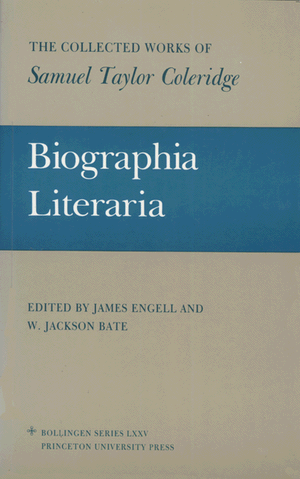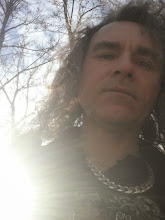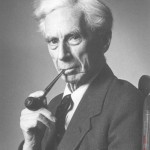Just as a perspective need not be actually perceived by anyone,
so a 'life' need not be actually lived by anyone.
-- Bertrand Russell
So, what exactly is Virginia Woolf saying about the need to get over gender? Clearly, she has read the feminist writings of the generations which immediately preceded her own. We know this because she refers directly to the work of Florence Nightingale and John Stuart Mill. And, more generally, she refers to the various instances of progressive political activism of late-19th and early-20th centuries. No doubt Woolf herself benefited greatly, both as a citizen and as a potential writer, from key advances made by women and men laboring for social justice. Nor should we imagine that Woolf believed the work of progressive politics had been achieved in her own day and an equitable society achieved. Because Woolf, though she mingled from her youth with her nation's greatest minds (the famous Bloomsbury Group), never had the benefit of a formal higher education. Women in 1900 did not get to attend university. Why then, does Woolf seem so opposed not only to the macho political writings of her day, which she saw as intrinsically fascist, but also to women's political writing? Why does she seem to argue that women need to get over their gender? Why does she insist great writers must become androgynous?

The answer to these questions is very involved. Let me attempt here at least a partial answer, and let me begin by referring to Woolf's avowed admiration for the ideas of the Romantic poet Samuel Taylor Coleridge, who figures so prominently in A Room of One's Own. Coleridge, to this day, is broadly considered the father of English-language literary criticism. His ideas in many respects are uniquely English, nevertheless in numerous crucial respects they derive from the ideas of Immanuel Kant, whom we discussed not only earlier in the semester but also in class just the other day. Working off of Kant's notion of the autonomy of pure Reason, Coleridge famously developed a theory of "poetics" which argued that the mind is an organic form which veritably brings all external reality into being, actively shaping that reality through a force which he called the "esemplastic power of the primary Imagination." This power can demonstrate itself in a mediated form as it concerns itself with Utilitarian worldly affairs such as politics and economics. The mind is able to reveal itself, its active and autonomous efficacy, in it purest and most immediate form, only in the creation of art. In genuinely great art - which exists not for any mercenary, practical or even moral purpose - but strictly for its own sake, we see the mind functioning at its highest level.

All of us live the vast majority of our lives in quotidian reality, caught up in the cares of the world. However, a small number of us are at times able to rise about the fray and sweat and anxiety of the world and occupy and exalted purely mental realm of artist creativity, one in which the think and to act become identical. It is only in these instance that the mind reveals it truly is living force whose environmental niche is not a physical world of solid objects such as table and chairs, but rather a purely mental world populated by "phantom" tables and chairs which exist in the modality of pure "percepts". The world itself, Woolf believed as a result of her interaction with the logical-positivist philosophers best represented by Bertrand Russell, was nothing but the totality of these possible points of view, along with the mental sensations which they occasion. To dwell unperturbed in this realm of unencumbered consciousness as fully and frequently as possible, this was, for Woolf, in the most literal sense, to live the "life of the mind."

Woolf, though she recognized that her access to the intellectual realm depended enormously on the work of her activist sisters, nevertheless refused to see their Utilitarian goals as ultimate ends. The Women's Movement did not bring women true freedom but was only a necessary precondition to the possible of women experiencing the highest form of freedom, which could be experienced only in the realm of the intellect. To experience true freedom, and to create aesthetic objects which would offers a lasting record of the experience of true freedom, each women needed "a room of her own." Yes, this did indeed entail a some sort of personal physical retreat from the duties of the world, but more properly it meant an intellectual retreat from anything that did not concern the free activity of the mind itself.
I have argued that Woolf inherited these notions of hers from key philosophers, in particular Kant and Bertrand Russell. Nevertheless, it is also important to acknowledge another tremendously important source of Woolf's ideas regarding aesthetics and the life of the mind - modern painting. Modern painting, as I mentioned in class, was first brought to England by Woolf's close associate Roger Fry, who organized several important exhibitions of French painting in England, the very first to be held in that country. The body of works Frye brought home from France to exhibit in London was compromised of artists and styles extending back to Manet's Modernism, and Pissaro and Monet's Impressionism; and forward to Gauguin and Cezanne's Post-Impressionism.

Paul Gauguin
Self-Portrait with The Yellow Christ, 1889
[Christ as wallpaper? B.K.]

Woolf considered Frye's discover and exhibition of these paintings, and the purified "non-objective" aesthetic which they represented (they were not "of" objects in the world, but simply used these objects as "occasions" or materials upon which the mind could direct is plastic powers) that she wrote a book entitled Roger Frye: Biography. Many readers today find this book highly austere, singularly lacking in the kind of minute detail which is the very stuff of serious biography. But Woolf's book must be understood not as a somatic biography so much as an intellectual biography. The book must be highly abstract, because according to Woolf's understanding, there is no other way to produce a portrait of the life of an unique are highly sensitive mind.

Though Woolf's prose never becomes entirely abstract and also retains some slight reference to the external world, it is nevertheless important to situate her historically not only alongside Impressionist and Post-Impressionist painters, but also the rising generation of purely abstraction painters such as Kasimir Malevich, Wasily Kandisky and Piet Mondrian - each of whom writes an influential manifesto of the nature of non-objective painting. Woolf's own writings, whether fictional, biographic or essayistic, should be read with this famous manifestos of modern painting clearly in mind.





